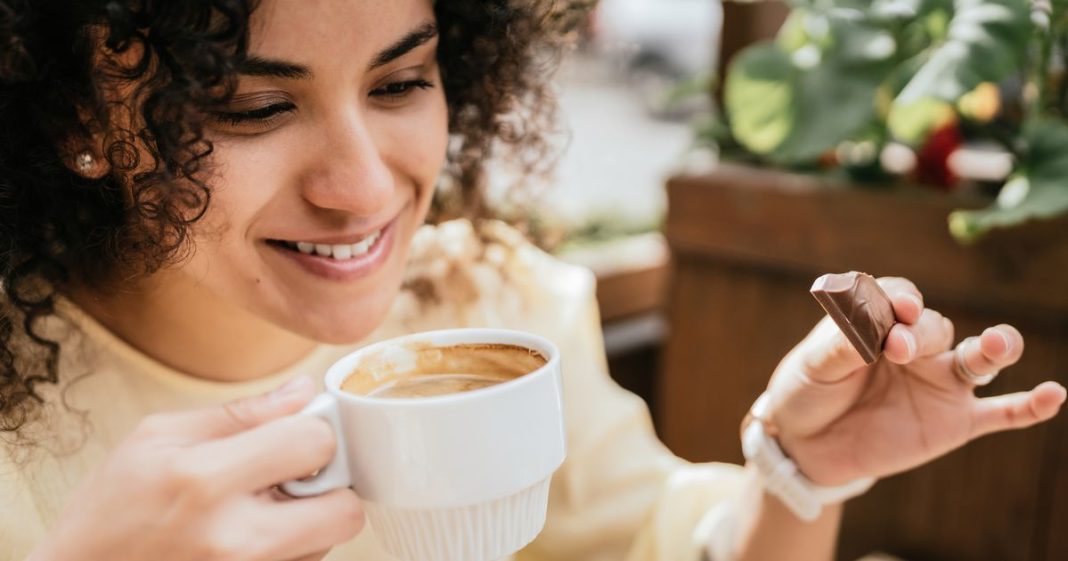Coffee drinkers are being warned to watch what they eat this Easter to ensure they don’t have too much caffeine. It comes as it was revealed that just one chocolate egg could contain more caffeine than a cup of coffee.
Hannah Shore, Head of Sleep Science at Mattress Online, said that if you’re enjoying a dark chocolate Easter egg, this could affect your sleep. This is because dark chocolate contains caffeine and you could be doubling your daily amount and not know it.
The amount depends on the cacao content – however, many of the dark chocolate eggs that you buy from supermarkets will contain around 45-60% cacao, which contains just under 47mg of caffeine per 100g. To put that into perspective, a standard cup of coffee contains 40g.
Because of this, Hannah warns: “While nobody is suggesting you cut out dark chocolate on the Easter weekend, be mindful of when you’re eating certain kinds. Caffeine blocks sleep-promoting receptors in your brain, which can make it more difficult to get a good night’s rest if you’ve consumed too much in the hours when you should be winding down.
“Try to limit how much dark chocolate you’re eating up to a few hours before bedtime and opt for smaller portions earlier in the day. If you fancy a treat later on the day then milk or white chocolate contains less caffeine so will reduce your risk of distributed sleep.”
Also urging parents to be mindful of this, as kids should not have too much caffeine or sugar, she warns it’s crucial for “parents to understand the effects that these could be having on our children’s sleep.” She adds: “Some studies suggest that those with diets high in sugar do not get the right amount of deep sleep. Try to make sure children aren’t eating excessive amounts of chocolate before bed.”
She adds: “Chocolate is a natural part of Easter celebrations and a great way to try to limit the negative effects on your sleep is to stay hydrated throughout the day. Consuming too much sugar and caffeine can dehydrate you, which is not conducive to restful sleep as it can lead to headaches, dry mouth and muscle cramps which can make it harder to fall asleep.”
She concluded: “These tips can help, but if things don’t go to plan, that’s perfectly okay. Just one disrupted night during the Easter holidays won’t have any longterm effects on the family. Children might be a bit grumpy or tired the next day, but getting back into a regular routine will sort things out quickly.”
At Reach and across our entities we and our partners use information collected through cookies and other identifiers from your device to improve experience on our site, analyse how it is used and to show personalised advertising. You can opt out of the sale or sharing of your data, at any time clicking the “Do Not Sell or Share my Data” button at the bottom of the webpage. Please note that your preferences are browser specific. Use of our website and any of our services represents your acceptance of the use of cookies and consent to the practices described in our Privacy Notice and Cookie Notice.

